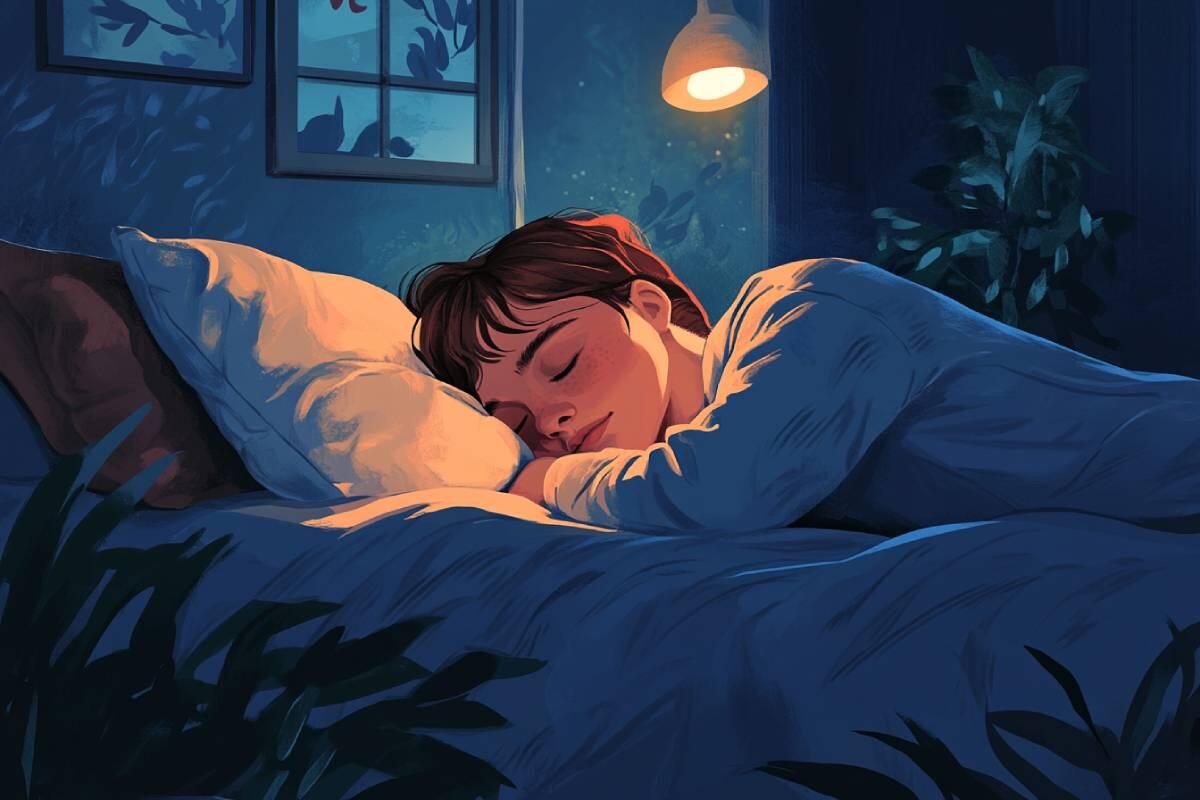Why Do Some People Need More Sleep Than Others?
Have you noticed that some people seem to need eternal sleep, while others wake up full of energy after just a few hours of rest? Well, the amount of sleep each person needs can vary a lot — and it's not just a whim!
There are many factors that influence our sleep needs, from genetics to lifestyle. Let’s dive into this fascinating world of sleep, understand what makes us so different, and discover how to improve your quality of life while sleeping (or trying to!).
What Defines the Amount of Sleep We Need?
You’ve probably heard that eight hours of sleep per night is “ideal,” right? However, that’s just a general average. The truth is, every body functions uniquely, and one of the biggest influences is the circadian rhythm, the famous “biological clock.”
This cycle regulates almost everything in our body: when we feel sleepy, hungry, energetic, and even how our mood shifts throughout the day. People with adjusted circadian rhythms for sleeping and waking early (the so-called “morning people”) tend to feel sleepy earlier at night. “Night owls” are those who prefer to stay up late.
Another interesting point is that the circadian cycle doesn’t operate alone. It’s influenced by:
- Age: Children and teens generally need more sleep than adults, while the elderly tend to sleep less (though not always sufficiently).
- Lifestyle: Work demands, sports routines, and stress levels can dictate how much rest your body requires.
- Genetics: Yes, your family history plays a role too. Research shows some people have genes that make them “sleepyheads” or allow them to function well with fewer hours of sleep.
- Health conditions: Disorders such as sleep apnea, insomnia, or even depression can drastically affect sleep quality and quantity.
What About Routine?
We can’t ignore the impact of routine on sleep. If you go to bed at different times every night, your body might get “confused” and not understand when it’s time to rest.
Irregular routines can throw off your circadian rhythm, leading to insomnia, constant fatigue, and other problems.
On the other hand, people with well-established sleep schedules tend to fall asleep and wake up more easily because their bodies already know when it’s time to wind down and when it’s time to wake up.
Pro tip: Try going to bed and waking up at the same time every day, even on weekends. It might be hard at first, but over time, your body will thank you.
Sleep Hygiene: The Secret to Peaceful Nights
You may have never heard of sleep hygiene, but this practice can transform your nights. No, it’s not just about showering before bed (though that helps!). Sleep hygiene refers to a set of habits that promote quality rest.
Practical Tips to Improve Sleep Hygiene:
- Create the right environment: Keep your room dark, quiet, and at a comfortable temperature. A cluttered space or flashing lights can be more disruptive than you think.
- Avoid stimulation before bed: No phone or TV in bed. The blue light from screens tricks your brain into thinking it’s still daytime.
- Establish a calming routine: Try reading, meditating, or listening to soft music before bed. This helps calm the mind.
- Watch what you eat and drink: Avoid heavy meals, caffeine, and alcohol in the hours leading up to bedtime.
- Exercise, but in moderation: Regular physical activity improves sleep, but avoid intense workouts at night.
Individual Differences: We’re All Unique
Some people simply need more sleep than others. While some are like long-lasting batteries, others “run out” quickly and need several “recharges” throughout the day. This doesn’t mean someone is more or less productive.
Plus, external factors also play a role. For example:
- Healthcare workers: Night shifts can completely throw off the circadian rhythm.
- Parents of newborns: Interrupted nights can affect even those who always slept well.
- Students: All-nighters for exams can cause the body to demand recovery sleep later.
The important thing is to understand your needs and respect your body.
Warning Signs: When Sleep Isn’t Enough
Feeling tired during the day is common sometimes, but when it becomes constant, it may be a sign something’s wrong. Watch out if:
- You struggle to concentrate.
- You wake up feeling more tired than when you went to bed.
- You experience irritability or frequent mood swings.
- Your memory is noticeably failing.
If these symptoms persist, seek a doctor or sleep specialist. After all, good sleep is essential for both physical and mental health.
Fun Facts About Sleep
- The world record for the longest time without sleep is 11 days (but no one should try to beat it!).
- During REM sleep (the phase when we dream), our brains are almost as active as when we’re awake.
- Animals have circadian rhythms too! Dolphins, for instance, can sleep with only half of their brain while the other half stays alert.
Why Is It So Important to Understand Sleep?
Sleep acts as a “reset” button for the body and mind. It’s during sleep that we consolidate memories, regulate hormones, and recharge to face a new day. When we neglect our sleep, we’re sabotaging our health.
Understanding why some people need more sleep than others isn’t just trivia — it’s an important step toward living a healthier, more balanced life.
Final Tip: Listen to Your Body
Everyone is unique. If you feel you need more sleep, maybe it’s time to reorganize your routine and prioritize rest. And remember: the quality of sleep is just as important as the quantity.
Invest in good habits, care for your sleep environment, and most importantly, respect your limits. After all, as they say, sleep is the best medicine — and who are we to argue with that?
